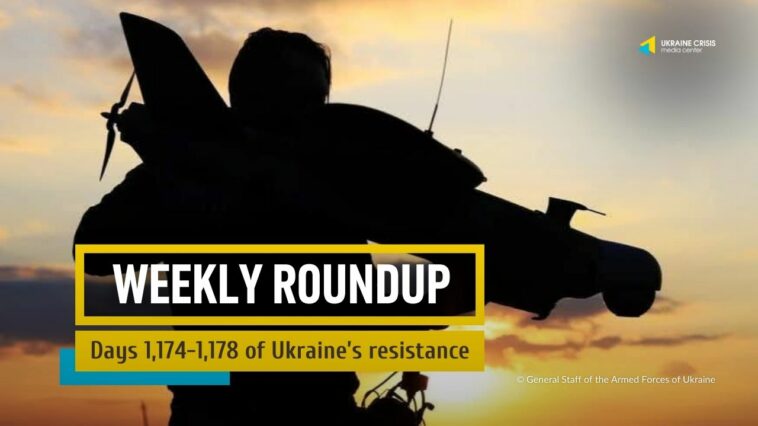This week, battles continued to rage all along the front lines. Russia continued to strike Ukraine’s civilian infrastructure deep in the rear. Direct negotiations between Moscow and Kyiv were expected to take place in Turkey on Thursday. The talks between the countries’ leaders did not happen after the Kremlin announced on Wednesday evening that Putin would skip the talks. The two sides are set to negotiate at a lower level on Friday.
Russia has been consistently demonstrating a lack of will to end the war. It has ignored a 30-day ceasefire proposal and a high-level meeting opportunity that could have paved the way toward a political decision to stop the fighting. There are no grounds to expect that a ceasefire or other ground-breaking decisions would emerge out of Ukraine-Russia talks on Friday, analysts say.
While all eyes are on potential peace talks, the Kremlin is preparing for a summer military campaign against Ukraine. Russia is sending poorly-trained recruits into infantry assaults and is recruiting 50,000 new soldiers a month, ISW says. Russia is amassing forces for a new Ukraine offensive, U.S. officials cited by CNN say. A global aviation council (ICAO) found Russia responsible for downing of flight MH17 over Ukraine in July 2014.
EU poised to adopt new sanctions on Russia on Tuesday.
Speaking to ZDF public television on Thursday, German Chancellor Friedrich Merz said: “A new sanctions package is ready. We will adopt it in Brussels on Tuesday.”
The European Commission proposed adding more individuals and over 100 vessels linked to Russia’s shadow fleet to its 17th package of sanctions against Moscow, EU diplomats cited by Reuters said on May 6. The sources said the package contains tighter export controls on goods that can be repurposed by Russia’s military and advanced technologies along with the listing of more shadow fleet vessels.
EU ambassadors have agreed to new sanctions on Russia. European Commission President Ursula von der Leyen welcomed the ambassadors’ approval in a post to X on Wednesday. The package could be adopted on Tuesday, May 20, Ukrainian news site European Pravda said on Monday following a meeting of the Committee of Permanent Representatives in the EU (COREPER), citing an unnamed EU official.
Germany and its allies will move to confiscate frozen Russian assets if legally possible, Merz said in an interview with the Zeit newspaper published on Thursday.

